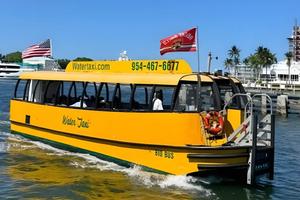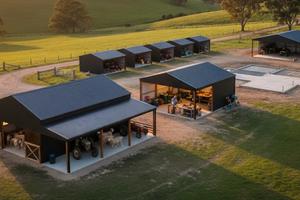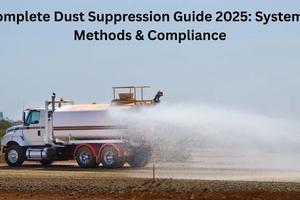11 Common Corporate Event Planning Mistakes to Avoid in 2025

Key Takeaways
Essential insights to remember
Define Clear Objectives First - Establish specific, measurable goals before any planning begins to ensure your event serves its intended purpose and success can be measured effectively.
Budget Realistically with Contingency - Create comprehensive budgets that account for all elements plus 10-15% buffer for unexpected costs to avoid financial surprises.
Prioritize Guest Experience - Focus on attendee perspective throughout planning, ensuring engaging content, quality catering, and smooth logistics that create lasting positive impressions.
Leverage Professional Services - Partner with specialized suppliers for critical elements like catering, AV equipment, and bar service rather than attempting to manage everything in-house.
Plan for the Unexpected - Develop backup plans for potential issues including weather disruptions, supplier cancellations, and technical failures to maintain event continuity.
Planning a corporate event can be a rewarding experience, but it also comes with a unique set of challenges. From small team-building sessions to large-scale conferences, the success of your event hinges on careful planning, attention to detail, and anticipating the unexpected. Unfortunately, even the most well-intentioned organisers can stumble into common pitfalls that derail the occasion.
Whether you are hosting an intimate networking evening or a large corporate gala, knowing what not to do is just as important as knowing what to do. By learning from common mistakes, you can save time, reduce stress, and deliver an event that makes a lasting positive impression on attendees.
For example, overlooking essential elements such as catering or entertainment options can easily sour the experience. A detail as specific as arranging corporate bar hire in Melbourne can elevate an event, but if ignored or mishandled, it may leave guests underwhelmed. To help you plan with confidence, here are the most common mistakes to avoid when organising corporate events.
Not Defining Clear Objectives
One of the biggest mistakes is diving into planning without establishing clear goals. Is the event meant to educate, celebrate, network, or launch a new product? Without clear objectives, it becomes difficult to measure success or even decide on the right venue, activities, or tone.
““Tip: Before booking a venue or sending out invitations, define the purpose of the event and set measurable goals. For example, if the aim is to boost employee morale, the event should focus on engagement and enjoyment rather than lengthy presentations.
Underestimating the Budget
Corporate events can quickly become expensive, especially when unexpected costs arise. Many organisers make the mistake of not allocating enough money for key aspects such as catering, AV equipment, entertainment, or professional staffing. Others fail to factor in contingency funds for last-minute expenses.
““Tip: Create a realistic budget that accounts for every element, from venue hire to post-event marketing. Always add a buffer—typically around 10–15%—to cover unplanned costs.
Choosing the Wrong Venue
The venue sets the tone for the event. A space that is too small can feel cramped and uncomfortable, while one that is too large may feel empty and lacking atmosphere. Accessibility is another critical factor—if your venue is difficult to reach, it can discourage attendance.
““Tip: When choosing a venue, consider the number of guests, the type of event, and logistical factors such as parking, transport, and accessibility for people with mobility needs. Always visit the venue in person before making a final decision.
Neglecting the Guest Experience
Some organisers get caught up in logistics and forget about the attendee’s perspective. A poorly timed agenda, lack of engaging activities, or uninspiring food and drink options can make guests feel overlooked.
““Tip: Put yourself in the shoes of your attendees. Would you enjoy sitting through the planned presentations? Is there enough variety in the catering to suit different preferences? Are networking opportunities being encouraged? A seamless experience should be the ultimate goal.
Overlooking Professional Services
Trying to manage everything in-house can be a recipe for disaster. While handling small elements internally may cut costs, attempting to oversee catering, bar service, entertainment, and logistics without professional help often leads to burnout and mistakes.
““Tip: Partner with reliable suppliers who specialise in corporate events. For instance, engaging a team that provides corporate bar hire in Melbourne ensures your drinks service is managed professionally, leaving you free to focus on other priorities. Similarly, trusted AV and catering providers can make a huge difference to quality and efficiency.
Poor Time Management
Running behind schedule is one of the most common—and most noticeable—mistakes at corporate events. Presentations that run too long, delayed meal service, or chaotic transitions between sessions can frustrate attendees and cause them to disengage.
““Tip: Create a detailed run sheet and rehearse timings where possible. Always allow buffer times for delays and keep sessions concise to maintain audience interest. Assign a dedicated event coordinator to keep the program on track.
Ignoring Dietary Requirements
Food is often a highlight of corporate events, but failing to consider dietary restrictions can alienate or even embarrass attendees. Guests with allergies, cultural restrictions, or lifestyle choices (such as vegetarian or vegan diets) should feel just as valued as everyone else.
““Tip: Collect dietary information in advance during the RSVP process and work with your caterer to provide suitable alternatives. Clearly label food at buffets and communicate options to serving staff.
Forgetting About Entertainment and Atmosphere
Corporate events don’t have to be stiff or overly formal. Too often, organisers neglect entertainment or ambiance, which can leave events feeling flat. Background music, live performances, or interactive activities can greatly enhance the experience.
““Tip: Choose entertainment that aligns with the tone of the event. A cocktail party might benefit from a live jazz band, while a team-building day could incorporate fun interactive activities. Elements like lighting, décor, and even bar service play a big role in shaping atmosphere.
Failing to Communicate Clearly
Poor communication—whether with suppliers, staff, or attendees—can cause major problems. Guests may not know the dress code, suppliers might misunderstand the timeline, or staff could miss key responsibilities.
““Tip: Keep communication channels open and clear. Provide written instructions and confirm important details in writing. For attendees, send reminders with all essential information, including parking, arrival times, and any special instructions.
Not Having a Backup Plan
Even the most carefully planned events can face unforeseen issues—weather disruptions, supplier cancellations, or technical malfunctions. Not having a backup plan can quickly turn a minor hiccup into a disaster.
““Tip: Always prepare contingency plans. For outdoor events, secure a wet-weather venue. For technical issues, have IT support on standby. For catering or bar service, ensure you have backup suppliers who can step in if needed.
Skipping Post-Event Evaluation
Many organisers breathe a sigh of relief when the event ends and forget about follow-up. However, failing to evaluate the event means missing valuable insights that can improve future planning.
““Tip: Collect feedback from attendees, suppliers, and internal stakeholders. Send out surveys, review what worked well, and note what could be improved. This ensures that every event builds on the success of the last.
Ready to get started?
Organising a corporate event is no small feat, but avoiding these common mistakes can make the process smoother and the outcome more successful. Clear objectives, a well-structured budget, professional services, and a strong focus on the guest experience are essential to success.
With careful planning and trusted suppliers, your event can strike the perfect balance between professionalism and enjoyment. Whether it’s securing high-quality AV equipment, designing a thoughtful agenda, or arranging corporate bar hire, each detail contributes to creating an event that leaves a lasting impression.
By learning from common missteps, you can ensure your corporate event runs seamlessly—delighting attendees, impressing stakeholders, and achieving your business objectives.





